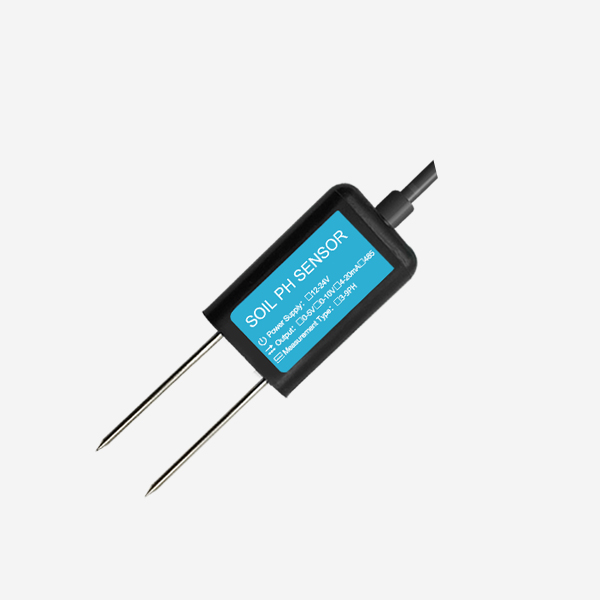A soil pH sensor is a valuable tool used in agriculture to measure the acidity or alkalinity of soil. Understanding the pH level of soil is crucial for farmers and agronomists as it directly impacts plant growth, nutrient availability, and overall agricultural productivity. By providing accurate and real-time pH measurements, soil pH sensors contribute to informed decision-making, improved crop management, and sustainable farming practices.

The pH level of soil affects the solubility and availability of essential nutrients required for plant growth. Different crops have specific pH preferences, and their ability to absorb nutrients from the soil is influenced by the soil’s pH. A soil pH sensor enables farmers to assess the pH level accurately and make appropriate adjustments to optimize nutrient availability for crops. This ensures that plants receive the necessary nutrients at the right levels, promoting healthy growth and maximizing yields.
Furthermore, soil pH sensors play a vital role in identifying soil imbalances and potential nutrient deficiencies or toxicities. Imbalanced pH levels can negatively impact microbial activity, leading to poor soil health and reduced fertility. By regularly monitoring soil pH, farmers can identify these imbalances and take corrective actions, such as adding soil amendments or adjusting irrigation practices, to restore optimal pH levels. This proactive approach improves soil quality and minimizes the need for excessive fertilizer application, thus reducing the environmental impact of agriculture.
The real-time monitoring capability of soil pH sensors is particularly beneficial for precision agriculture. With precision agriculture techniques, farmers can tailor their management practices based on site-specific conditions, optimizing resource utilization and minimizing waste. By integrating soil pH sensors with other monitoring tools, such as soil moisture sensors and weather stations, farmers can create a comprehensive understanding of their fields’ conditions. This data-driven approach enables precise irrigation scheduling and targeted fertilization, resulting in efficient resource management, cost savings, and increased crop yield.

Additionally, soil pH sensors facilitate the adoption of conservation practices, such as soil conservation and erosion control. Certain plant species are more tolerant to specific pH levels, and by monitoring soil pH, farmers can select suitable crops for their fields, enhancing the resilience of their agroecosystems. Moreover, understanding the pH variations across a farm helps identify areas that require soil conservation measures, such as contour plowing or cover cropping, to prevent erosion and maintain soil health.
Advancements in sensor technology have made soil pH sensors more user-friendly and accessible. Portable and handheld sensors allow farmers to gather on-site measurements easily, reducing the need for laboratory testing and enabling quick decision-making. Some sensors even offer wireless connectivity and data integration options, allowing for seamless data transfer and analysis. This connectivity facilitates remote monitoring, data sharing, and collaboration among farmers, agronomists, and researchers, promoting knowledge sharing and innovation in sustainable farming practices.
In conclusion, soil pH sensors are instrumental in optimizing agricultural productivity and promoting sustainable farming practices. By providing accurate pH measurements, these sensors enable farmers to make informed decisions regarding nutrient management, precision agriculture, and conservation practices. The real-time monitoring capability enhances resource efficiency, reduces environmental impacts, and fosters resilient agroecosystems. Going forward, the continued advancement and adoption of soil pH sensors will contribute to the development of environmentally conscious and economically viable agricultural systems, ensuring a more sustainable future for both farmers and the planet.
